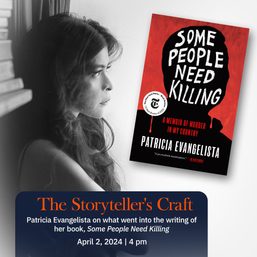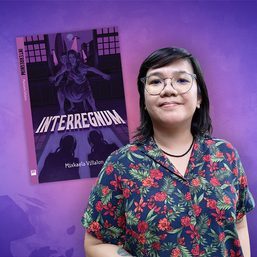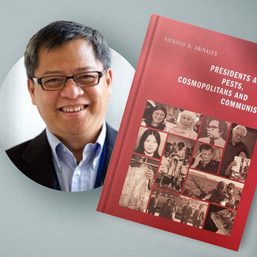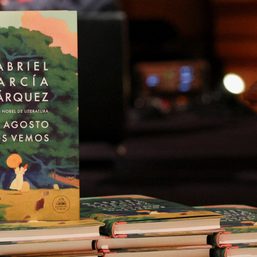SUMMARY
This is AI generated summarization, which may have errors. For context, always refer to the full article.
![[#RapplerReads] Self-improvement books to read for the New Year, a new you](https://www.rappler.com/tachyon/2021/12/rappler-reads-ls-1.jpg)
Editor’s note: #RapplerReads is a project by the BrandRap team. We earn a commission every time you shop through the affiliate links below.
Do you still make New Year’s resolutions or have you decided to shun this practice? Whichever side you’re on, it’s still good to set some goals you want to achieve. You can do it anytime, but doing it as we enter a new year just makes it a little bit symbolic, a fresh start.
If you’re tired of the usual resolutions like losing weight or spending less, why not try something that may seem less grand but could be more impactful in the long run? Maybe simple goals like becoming 1% better every day or learning how to react to negative situations?
For our January #RapplerReads, we are sharing with you some of the books that helped us become better people. Self-help books may not be for everyone but we hope you find something that you can read as you welcome the New Year and a new you.
(READ: [OPINION] In defense of reading self-help books)
The Daily Stoic: 366 Meditations for Clarity, Effectiveness, and Serenity by Ryan Holiday and Stephen Hanselman

The Daily Stoic is a daily book that you can read either one page a day for 365 days or all at once if you like. This book about the ideals and attitudes of ancient stoics like Marcus Aurelius completely changed how I view life. The lessons on managing emotions like anger and pleasure, focusing only on things that I can control have been helping me react to things – both good and bad – in a way that’s not self-damaging. Since reading this book, I’ve been able to step back and take the quickest route to solving a problem whenever I’m faced with one, whether that’s at work, at home, or in situations that would really test even the most patient person like dealing with aggressive drivers on the road or poor customer service.
The public has polarizing views about this book and its author – stoicism has even become a butt of online jokes – because that’s what happens when a book goes mainstream. But if we take these lessons with a discerning mind, the results are going to be truly beneficial.
– Marj Handog, BrandRap editor
All I Really Need to Know I Learned in Kindergarten by Robert Fulghum

I read this book in high school, a time when I was concerned with getting good grades so I could get into the best universities in the country. So I was skeptical: How could I already know everything I would need to know about life? In this book, Fulghum expands on lessons we were taught in kindergarten. Learnings like sharing everything, playing fair, taking a nap every afternoon are recontextualized in many different ways.
My favorite kindergarten advice is one I try to follow daily. “When you go out into the world, watch out for traffic, hold hands, and stick together.” When I was younger, I was more concerned with getting ahead of everyone in pursuit of my goals. But this advice reminds me that it will always be better to take a moment to breathe and look at my surroundings, check who I can help, and cross the finish line with other people like my family, friends, or coworkers. This book, above everything, grounds me. I’m not the smartest or the best person in the room, but I don’t need to be. I know everything I need to know, and I learned it all in kindergarten.
– Raven Lingat, Senior BrandRap producer and GoodRap lead
DK Atlases

This is the original book I had, but it’s out of print so this would do 🙂
I was never a reader growing up, and the earliest memory I have of owning a book is getting an estranged parent to buy the “Ultimate Pocket World Atlas” for me. It opened up my fascination with geography, world history (mostly contemporary), linguistics (in an amateurish kind of way), and basically, looking at maps. In fourth grade, I tried to memorize capitals and even made an Excel sheet of which territories remained under the possession of colonial powers (France has Réunion beside Madagascar, for example, and they still do!), while other kids pored over fantasy books, video games, and the like.
I thought it was just a childhood fancy, but growing older, I found myself drawn to world news and features on other cultures. (Check my YouTube watch history.) Even if I didn’t have the physical means, I wandered. The vastness of the world amazes me. I can drift away to any other reality when my own dissatisfies me. It’s not the healthiest of coping mechanisms, but it got me through adolescence and now, adulthood. Any other kid or person can also get by knowing that the world is big enough for all of our dreams and ambitions.
– Jaco Joves, Senior BrandRap producer and #CheckThisOut lead
Zen Mind, Beginner’s Mind: Informal Talks on Zen Meditation and Practice by Shunryu Suzuki

Zen Mind, Beginner’s Mind is a compact philosophical text with practical life advice. Funny enough, I found this recommendation from another book, Eleven Rings by Phil Jackson, who famously integrated zen practices like meditation into his professional coaching. As with many of us remote workers, I have adopted meditation and breathing exercises into my daily routine, but it took years for me to get truly comfortable. For those like me, who need help finding a natural rhythm with their breathing, this book suggests to think of the throat as “a swinging door,” where air merely passes in and out.
Shinryu Suzuki’s book, which dons a modern, secular view on zazen meditation, encourages readers to let go of dualistic thinking — you and I, this and that, good and bad. Thus, when we breathe, we are not necessarily inhaling air into our bodies, then exhaling it out to the world, we are simply letting the air pass through this one world, which our bodies are a part of. Among its other practical benefits, the book reminds us to always maintain good posture. When you keep yourself in order, you keep the world in order.
– Pawi Bitanga, BrandRap Producer and host of Inside the Industry podcast
The Subtle Art of Not Giving a F*ck: A Counterintuitive Approach to Living a Good Life by Mark Manson

The book received a lot of praise when it first came out but has since then been receiving mixed reactions from readers. Some are praising the book for making an impact in people’s lives, others call it crude and unnecessarily vulgar with not a lot of substance going on. On a personal note, however, it was a good reminder not to give so many f*cks about what other people think.
When I first read the book, I was at a point in my life when I lost sight of my own aspirations and was beginning to follow career trajectories that other people had laid before me. I was also a serial people pleaser who couldn’t say no or had trouble telling people how I truly felt. I felt overworked and miserable, and reading the book reminded me that I had my own path to follow. It was an eyeopener, especially for someone whose mind needed a break from too much seriousness in life. Online critics don’t give Mark Manson a lot of credit, especially since he used to be a dating coach. But his words did teach me that living life according to someone else’s definition of success isn’t a life worth living.
– Julian Cirineo, Senior BrandRap producer and CommuniCart lead
Atomic Habits: An Easy & Proven Way to Build Good Habits & Break Bad Ones by James Clear

James Clear’s Atomic Habits says what other self-development books won’t tell you: goals suck. You hit one; you pine for another. You fail at one; you quit. And while goals have a function, I’m sure it’s not a weapon for being unkind to your future self. It’s not sustainable. What is sustainable is slowly but surely turning yourself into the person you want to become. Forget about reading 50 books a year. Start reading five pages every day. Then, when five pages become easy, move up to ten, fifteen, and so on. This doesn’t necessarily mean you’ll be able to hit 50 books, but it will turn you into a better reader than you were yesterday.
Applying this to other areas of life yields actually fulfilling results, from becoming smarter with money to building stronger relationships with loved ones. A life-changing read for me.
– Armando dela Cruz, Senior Content Strategist and host of Play of the Week
How about you? Got any self-help books you highly recommend? – Rappler.com
Add a comment
How does this make you feel?





There are no comments yet. Add your comment to start the conversation.